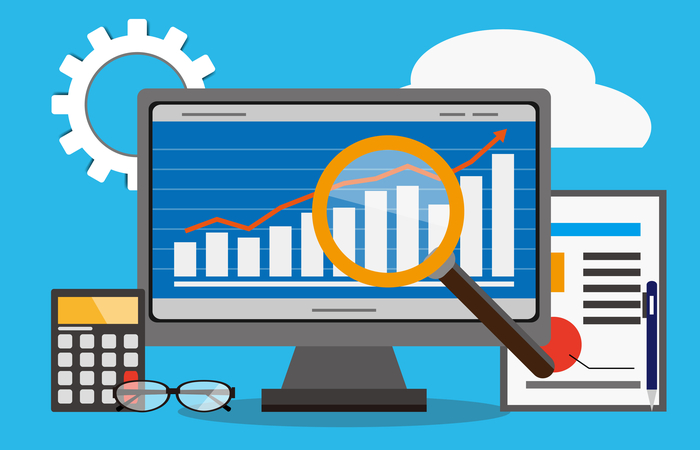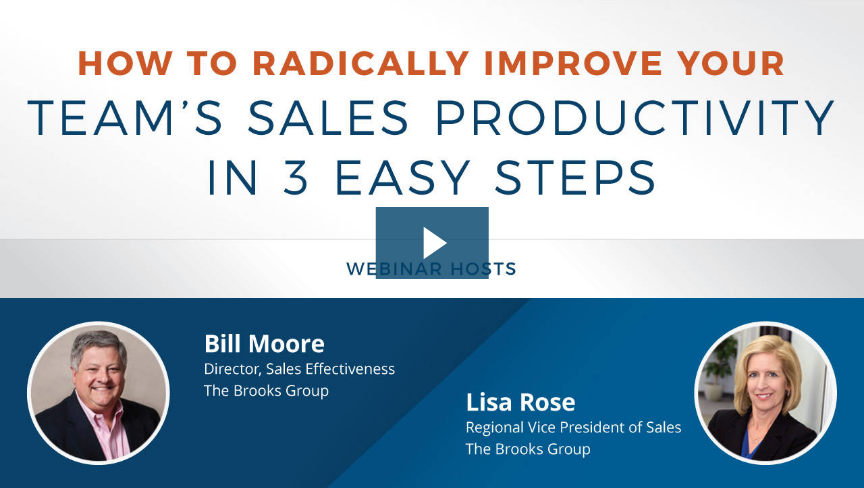You can’t improve something until you can measure it—that’s why tracking sales KPIs is an important task for effective sales leaders.
Sales KPIs are your guide to staying focused on what matters most and improving your sales team’s performance. This post will cover what KPIs are, why they’re important, and which ones are the most critical to track.
What Are Sales KPIs?
Sales KPIs (Key Performance Indicators) are metrics used to track the performance of a business, a department, or individuals against goals.
Why Are Sales KPIs Important?
If you’ve established a strong sales culture, your sales numbers are top of mind for everyone in the organization. Tracking KPIs will help you understand if your team is on track to hit the target—and allow you to intervene if necessary.
Key performance indicators are an important part of the sales enablement process, because they allow you to see how your sales reps are performing. This insight will help you determine the tools, training, or coaching that can help them improve.
But before you can track your performance indicators you must decide on what to measure.
Selecting Sales KPIs to Track
There are a number of sales KPIs that you can track. The key is to choose the ones that will make the most sense for your industry and your specific goals.
Here a few rules of thumb when it comes to selecting your KPIs and metrics:
- Less is More – It can be tempting to track every data point related to the sales department, but the most important information will be lost if you try to track too much. Keep the total number to 8 or fewer to make your meeting scorecard or sales dashboard easy to understand at a glance.
- Leading Indicators Over Lagging Indicators – Focus on “In-Process” measurements like “Appointments Booked”, which allow you to coach your reps while they are working towards a goal. Do away with the black and white “End-Process” measurements that don’t foster growth in a sales team and only really tell you what the end result is.
- Use it or Lose It – If you’ve chosen your KPIs and you realize there are some that are less impactful or that you’re not using to take action, don’t be afraid to adjust them.
Pipeline Health
Metrics that focus on the sales funnel or sales cycle present excellent opportunities to see where your salespeople are doing great and where they’re facing challenges. These leading indicators will help you intervene with coaching where it’s necessary.
Here are some examples of KPIs related to pipeline health:
- Marketing Qualified Leads
- Sales Qualified Leads
- Open Opportunities
- Appointments Set
- Projected Sales Pipeline
Sales Rep Efficiency
You should be clear with your reps that tracking sales activities isn’t about inspecting their every move. Understanding how your team members are performing will help you tighten up the sales process and get closer to achieving revenue goals—which is a win-win for everyone.
Here are some examples of KPIs related to sales rep efficiency:
- Close Won/Close Lost Rates
- Length of Sales Cycle
- Upsell/Cross-Sell Rates
- Quota Attainment
- Average Cost Per Lead
- Conversion Rate
Customer Satisfaction
Selling to existing customers is the most efficient way of increasing revenue for your organization. That’s why it’s critical that you keep an eye on customer service and the performance indicators involved with it.
Here are some examples of KPIs related to customer satisfaction:
- Existing Client Engagement
- Retention and Churn Rates
- Customer Lifetime Value
Conclusion
Your organization is unique and you must take that into consideration when you decide on the best sales KPIs to track.
Remember that the goal of collecting data is to take action. Your results will help you know exactly where to focus your attention, and what steps can be taken to improve the performance of your team.
Establishing these metrics is just one part of performance management. To set your team up for success, provide them with the training and tools needed to excel at every stage of the sales process.
Whether it’s basic sales process fundamentals, or more advanced skills like strategic account management training or sales negotiation training The Brooks Group is here to support you.
Ready to take your sales team to the next level with sales training and hiring solutions that work? Claim your Sales Effectiveness Action Plan from one of our industry experts today.
You may also enjoy this short webinar:





